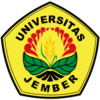Publication Ethics
Publication Ethics and Malpractice Statement. Jurnal Kajian Pembaruan Hukum sets high standards of ethical behavior by all parties involved in the journal publication, i.e., authors, journal editors, peer-reviewers, and the publisher to ensure objectivity and avoid the conflict of interests. As a peer-reviewed journal, the Journal is committed to applying publication ethics as ethical guidelines in our three issues in a year.
Ethical Guidelines For Publication's . The publication of each article in the Journal is a prominent component in the development of a coherent and respected network of knowledge. It is regarded as a direct reflection on the quality of works contributed by authors and acknowledged by institutions supporting them. As the publisher, the Journal takes its duties of guardship over all stages of publication and recognizes kinds of ethical responsibilities. It involves all parties in the journal publication, i.e., authors, journal editors, peer-reviewers, and the publisher.
Publication Decisions. Editors are responsible for taking into consideration the process of decision about articles submitted to the Journal. Editors should be under the guidelines and policies of the Journal and constrained by ethical and legal requirements as shall then be in force regarding libel, plagiarism, and copyright infringement. The editor may confer other editors or reviewers in making publication decisions based on research fields.
Fair Play. Editors at any time evaluate manuscripts for their intellectual content without regard to race, gender, sexual orientation, religious belief, ethnic origin, citizenship, or political philosophy of the authors.
Confidentiality. Editor(s) and any editorial staff must not disclose any information about a submitted manuscript to anyone other than the corresponding author, reviewers, potential reviewers, other editorial advisers, and the publisher, as appropriate.
Disclosure and Conflicts of Interest. Unpublished materials disclosed in a submitted manuscript must not be used in an editor's research without the express written consent of the author.
DUTIES OF REVIEWERS
Contribution to Editorial Decisions. Peer review assists the editor in making editorial decisions and through the editorial communications with the author may also assist the author in improving the paper.
Promptness. Any selected referee who feels unqualified to review the research reported in a manuscript or knows that its prompt review will be impossible should notify the editor(s) and excuse himself from the review process.
Confidentiality. Any manuscripts received for review must be treated as confidential documents. They must not be shown to or discussed with others except as authorized by the editor(s).
Standards of Objectivity. Reviews should be conducted objectively. Personal criticism of the authors is inappropriate. Referees should express their views clearly with supporting arguments.
Acknowledgment of Sources. Reviewers should identify relevant published work that has not been cited by the authors. The relevant citation should accompany any statement that an observation, derivation, or argument had been previously reported. A reviewer should also call to the editor's attention any substantial similarity or overlap between the manuscript under consideration and any other published paper of which they have personal knowledge.
Disclosure and Conflict of Interest. Privileged information or ideas obtained through peer review must be kept confidential and not used for personal advantage. Reviewers should not consider manuscripts in which they have conflicts of interest resulting from competitive, collaborative, or other relationships or connections with any of the authors, companies, or institutions connected to the papers.
DUTIES OF AUTHORS
Reporting Standards. Authors of reports of original research should present an accurate account of the work performed as well as an objective discussion of its significance. Underlying data should be represented accurately in the paper. A paper should contain sufficient detail and references to permit others to replicate the work. Fraudulent or knowingly inaccurate statements constitute unethical behavior and are unacceptable.
Originality and Plagiarism. The authors should ensure that they have written entirely original works, and if the authors have used the work and/or words of others that this has been appropriately cited or quoted.
Multiple, Redundant, or Concurrent Publication. An author should not, in general, publish manuscripts describing essentially the same research in more than one journal or primary publication. Submitting the same manuscript to more than one journal concurrently constitutes unethical publishing behavior and is unacceptable.
Acknowledgment of Sources. Proper acknowledgment of the work of others must always be given. Authors should cite publications that have been influential in determining the nature of the reported work.
Authorship of the Paper. Authorship should be limited to those who have made a significant contribution to the conception, design, execution, or interpretation of the reported study. All those who have made significant contributions should be listed as co-authors. Where others have participated in certain substantive aspects of the research project, they should be acknowledged or listed as contributors.
Competing Interest. The corresponding author is responsible for submitting a competing interests' statement on behalf of all authors of the paper. After the paper submission is accepted and it is scheduled for publication, the corresponding author will be asked to attach the declaration of no conflict of interest.






